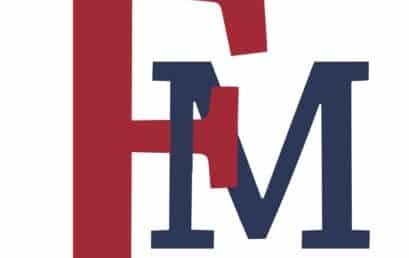CHEM 203L – Analytical Chemistry I Lab
Prerequisites/Corequisites: Take CHEM-203. (Required, Concurrent). Credit Hours: Min: ; Max: Description:
CHEM 203 – Analytical Chem I: Quant Analytical
Prerequisites/Corequisites: Take CHEM 112 and CHEM 112L. (Required, Previous). Credit Hours: Min: 4; Max: Description: Solution equilibria; evaluation of analytical data; precipitation theory and precipitate formation; volumetric and gravimetric principles; acids, bases, and neutralization; oxidation-reduction; electroanalysis; photometry; complexation analysis; methods of separation.
CHEM 201L – Organic Chemistry I Laboratory
Prerequisites/Corequisites: Take CHEM-201. (Required, Concurrent). Credit Hours: Min: ; Max: Description:
CHEM 201 – Organic Chemistry I
Prerequisites/Corequisites: Take CHEM 112 and CHEM 112L. (Required, Previous). Credit Hours: Min: 4; Max: Description: The structure, properties, synthesis, and reactions of organic compounds, and their characterization by IR and NMR spectroscopies. Organic molecules studied include alkanes, alkenes, alkynes, and aromatics. The lab emphasizes separation, purification, and identification of organic compounds by physical, chemical, and […]
CHEM 112L – Gen Chem II Lab: Concept Lab
Prerequisites/Corequisites: Take CHEM 111 and CHEM 111L. (Required, Previous). | Take CHEM 112. (Required, Concurrent). Credit Hours: Min: 1; Max: Description: Introductory laboratory experiments reinforce concepts from Chem 112 as well as description and explanation of observed reactions, measurements, calculations, proper use of laboratory equipment and laboratory safety.
CHEM 112 – Gen Chem II: General Concepts Chemistry
Prerequisites/Corequisites: Take CHEM 111 and CHEM 111L. Credit Hours: Min: 3; Max: Description: Oxidation-reduction, equilibria, electrochemistry, thermodynamics, acids and bases, kinetics, chemistry of the representative elements, coordination compounds of the transition elements, nuclear chemistry.
CHEM 111L – General Chemistry I Laboratory: General Concepts in Chemistry
Prerequisites/Corequisites: CHEM 111 and MATH 111 (or MATH 111E). Credit Hours: Min: 1; Max: Description: Introductory laboratory experiments reinforce concepts from Chemistry 111 as well as description and explanation of observed reactions, measurements, calculations, proper use of laboratory equipment and laboratory safety.
CHEM 111 – General Chemistry I: General Concepts in Chemistry
Prerequisites/Corequisites: MATH 111 (or MATH 111E). Credit Hours: Min: 3; Max: Description: The states of matter, including the gas laws; stoichiometry; electronic structure and bonding; periodicity; solutions.
BIOL 406 – Human Physiology
Prerequisites/Corequisites: Take BIOL-105 BIOL-115L BIOL-107 BIOL-106 BIOL-108 CHEM-201. (Required, Previous or concurrent). | Take BIOL-205 or BIOL-305. (Required, Previous or concurrent). | Take BIOL-406L. (Required, Concurrent). Credit Hours: Min: 4; Max: Description: The normal structure and function of the human body. Physical and chemical concepts such as bioenergetics and enzyme function will be covered. Credit […]
BIOL 401 – Genetics
Prerequisites/Corequisites: Take BIOL-105 BIOL-115L BIOL-107 BIOL-106 BIOL-108 CHEM-201. (Required, Previous). | Take BIOL-401L. (Required, Concurrent). Credit Hours: Min: 4; Max: Description: Mendelian genetics, the chromosome, probability, and mapping in diploids, fungi, bacteria, and viruses; chemical basis of DNA replication and mutation and the genetic code.
BIOL 301 – Cell Biology
Prerequisites/Corequisites: Take BIOL-105 BIOL-115L BIOL-107 BIOL-106 BIOL-108 CHEM-201. (Required, Previous). | Take BIOL-301L. (Required, Concurrent). Credit Hours: Min: 4; Max: Description: Cellular and molecular basis of cell structure and function: chemical composition and physical properties of biological molecules; organization and function of supramolecular structures, organelles, and basic cell types; enzyme action and regulation; energetics and […]
BIOL 108 – Integrated Bio Concepts II
Prerequisites/Corequisites: Take BIOL-108L. (Required, Concurrent). Credit Hours: Min: 4; Max: Description: Introduction to biology’s core concepts from organisms though ecological systems, including biological information, evolution, cells, emergent properties, and homeostasis. This course covers similar material found in Biology 106 but increases the amount of critical analysis of data and teaches the skills necessary to critically […]
